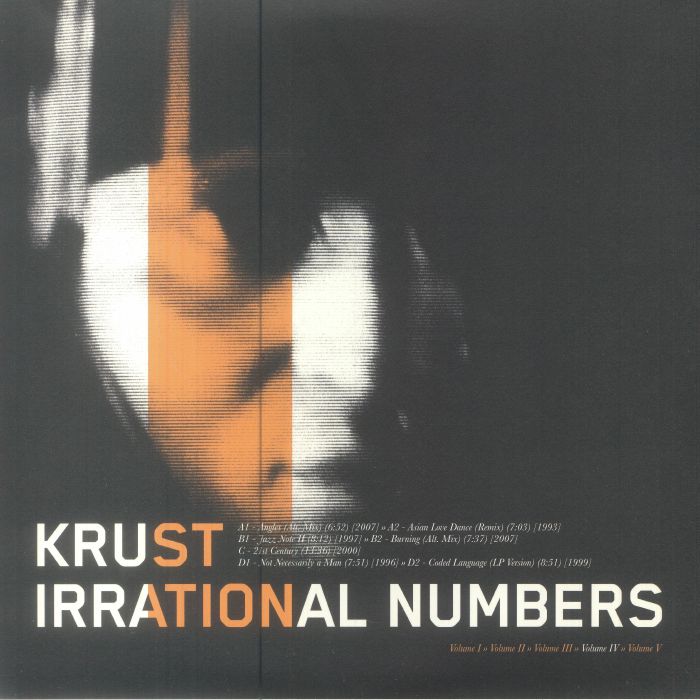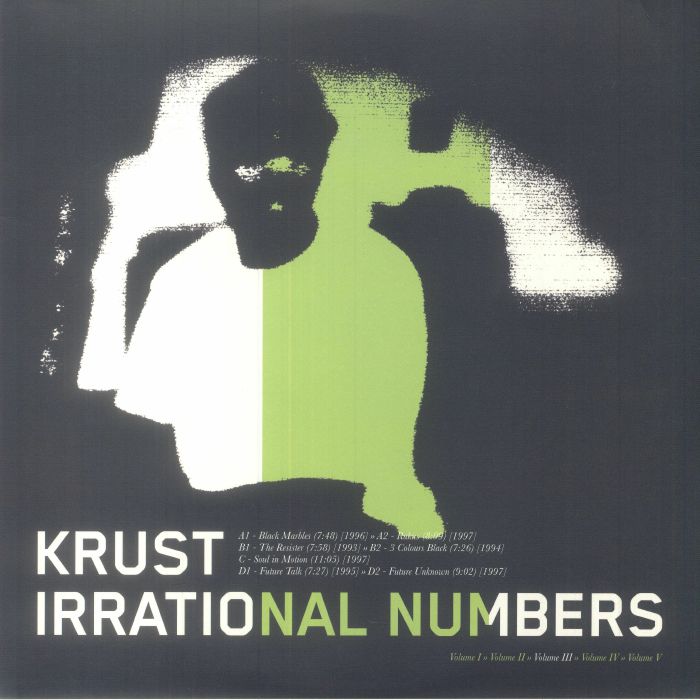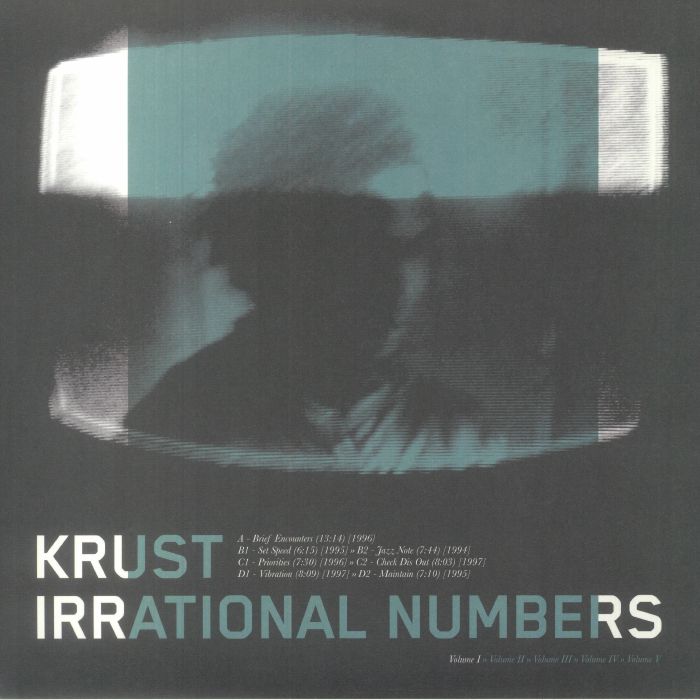Krust interview – “It was about rebellion, it was young kids smashing the place up with music” | Juno Daily
The Bristol legend takes us on a tour of the Wonder Palace

For the 18th century poet and visionary William Blake, the road of excess led to the palace of wisdom. In the case of 21st century jungle/d&b producer Krust, it took him all the way to Zanzibar, and the palace of wonder.
In our previous interview with Krust, three years ago, we heard how he finally rejected the hectic, unhealthy life he’d been leading as a globetrotting d&b producer and DJ, walking out of a Full Cycle office party in Bristol in 2008 declaring “I just can’t do this anymore” to himself. After a lengthy meditational and philosophical sabbatical, he eventually emerged as a self-help guru, mentoring creative youth in techniques on maximizing their potential, and finally, in 2021, released the highly accomplished The Edge of Everything album for Crosstown Rebels.
Wonder Palace – in case you’d been wondering whether we’ve been at the laudanum again – is the name of Krust’s new label. The name is inspired by a real palace – one he visited on the island off the coast of Tanzania, on the eastern side of Africa.
“I went to Zanzibar last year with my family, and we were being taken around by the family,” he tells us from a darkly lit room somewhere in Bristol. “We came to the king’s palace, and it was called the Palace of Wonders. Immediately I had this vision of Casablanca, that old kind of vibe, and it flooded me with these images of what it must have been like in those days – the king inviting dignitaries from all over the world to this palace. All these rooms with silks and spices. I thought I want to create this story, this vibe, something that brings different elements together.”

The label has been responsible for the Irrational Numbers series, number four of which has just dropped. The series collects up Krust’s early work for a whole load of key jungle and drum & bass labels and repackages them into neat, DJ-friendly double vinyl albums complete with remastering and new artwork featuring numerous shots from the archive.
“It’s become important to own your masters and own all your rights, that’s obvious,” he tells us, “I owned the rights to my tunes but they were all in different places – Full Cycle, V, Philly Blunt… I wanted to offer the audience the opportunity to sample them all in one place without shopping around.
“So the idea was to create a series of albums that remind people of the heritage, get them all in one place, tell the story so that the new gen can hear the music and connect the dots because they probably know who I am now from the newer stuff.”
Drum & bass remains underground these days but it has seduced successive generations with its charms. “I’m fortunate that I’ve been in it long enough that some of the dads are introducing my music to their children,” he says.

“It dawned on me about two years ago I was playing this V party in London, these two 19 year olds came rushing up to me, really excited, saying ‘you’re Krust aren’t you?! Our dad’s played us your music and that’s why we’re here. This is the new wave, the next wave, the 19 and 20 year olds, and it’s been like that every time I’ve been out recently, these young guys really into the music.”
Krust describes his ‘James Brown moment’, as he thinks of it, and wanting to recreate that for the latest generation. “I remember digging in the crates when I was learning about breaks and jungle and beats. There’d always be a James Brown record that had a break in it. We’d consider that old school, we’d consider that to be the classic era of funk and that was the backbone of the jungle era, if you wanted something a little bit different, a bit experimental, then draw for James. You could always rely on it.
“It’s like that with the Irrational Numbers albums – I want to give people that solid slab of Krust, a solid slab of where the music came from, that story that is rooted in something authentic. All remastered, out a nice touch with the sleeves and the pictures from back in the day, so they’re updated but there’s a nod to the past there.”
The Irrational Numbers name, meanwhile, is a reference to “numbers and sequences, ancient geometry – how numbers and shapes and sounds fit together! There’s a non-linear way to the way that everything operates.”
With Krust’s output in the 90s being so prolific and varied – you’ve got everything from the rough and ready, almost jump up Gang Related material for Dope Dragon, the Amen smashers, the more jazz-slanted mellow tunes – there’s plenty to keep each package fresh and avoid repetition. That other Krust trademark, the lengthy epic stretching way beyond the boundaries of the conventional seven or eight minute drum & bass track, is also well represented. His ‘Soul In Motion’ classic, clocking in over 11 minutes, having been originally released on Full Cycle in I997, is included on Irrational Numbers volume three, while volume four contains the even more epic ’21st Century’, well on its way to 14 minutes.

While he points to other, shorter tracks like his one off Talking Loud single ‘Future Unknown’ as also being ‘epics’, he does acknowledge these lengthier, convention-breaking tracks are something he’s become known for.
“I’m just exercising that creative palate,” he says, “For me it all comes down to hip-hop and the expression of hip-hop. In hip-hop they say don’t bite, be original, be creative, be fresh and be dope. That was my blueprint. I mapped that onto my creations and looked at how music and the culture was going. I thought ‘how do I fit in with this culture and create my sound but do it so that I also stand out?’
“I looked at the film format, at how people were making films – that’s where the whole widescreen thing came from. It was Jumping Jack Frost who called my music that. In movies, when you watch a really great movie you never know what’s going to happen in the next scene – that was my thing.”
The whole exercise of looking back to his formative years – years when life was happening so fast it was hard to take in – was an interesting, educational experience in itself, he says. It helped him appreciate what jungle was in the beginning.
“It was an anti-establishment movement, it was about rebellion, it was young kids smashing the place up with music, It was almost like the spiritual, musical revolution that was non-violent – Amens smashing in your face, Dillinja’s sub-bass hitting your chest, that was the message we were sending to the world.
“We taught ourselves, we created an industry that wasn’t there before, people take it for granted now. But that came from loneliness and fears and anxieties – and the optimism and the hope and the joys of unemployed youth We mastered the alchemy and the science ourselves. 2000 years ago, we would have been wizards, ha ha. We created it out of nothing.”
At the same time, he’s the last person to get stuck worshipping the past when there’s the future to be getting on with.

“Now we’re taking the raw elements – the kick drums, the bass sounds, synthesisers – individually. Before, we had to sample it. But now we’ve mastered our craft, we can do that. We’re taking that raw data and creating something magical that even works at a distance. I don’t need to go to Japan for someone to play ‘Warhead’ and smash up the dance. That’s an effect at a distance – that’s magic. We’re moving now to that next phase of recognising what we can achieve as creatives, because the technology we’re creating today is incredible.”
No doubt, that technology will mean an awful lot of incredible new music is on the way too, and heaps of it will be from Krust, who still sounds like he’s only just getting started. In the meantime, welcome to the Wonder Palace – we know you’re going to enjoy your stay.
Ben Willmott
Check the Krust artist page to buy your copy of Irrational Numbers vol4 and more

